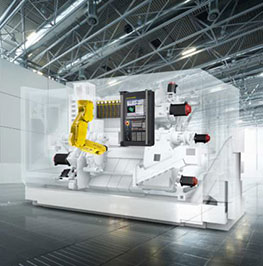

ನವೆಂ . 06, 2024 10:36 Back to list
What is Shred Scrap Metal?
Shred scrap metal refers to a specific category of recycled metal that has been processed and reduced in size, making it easier to handle and recycle. This type of scrap metal is generated from various sources, including industrial processes, demolition sites, and junkyards. It plays a crucial role in the recycling industry, providing a sustainable alternative to extracting raw materials and contributing to environmental conservation.
Understanding Shred Scrap Metal
Shred scrap metal is produced by the shredding process, where large pieces of metallic materials are broken down into smaller, uniform pieces. The shredding process typically begins with the collection of various metal items, such as vehicles, appliances, and machinery. These items are then sent to specialized shredding facilities equipped with powerful machines designed to crush and shred the metals. Once shredded, the metal is sorted based on its type—ferrous (containing iron) or non-ferrous (such as aluminum, copper, and brass)—and prepared for further processing.
Sources of Shred Scrap Metal
1. Automotive Industry Abandoned or damaged vehicles are one of the most notable sources of shred scrap metal. When cars reach the end of their life cycle, they are often sent to scrapyards, where they are dismantled, and the metal components are shredded for recycling.
2. Construction and Demolition Buildings and structures often contain a significant amount of metal that can be salvaged during demolition. Steel beams, rebar, and scaffolding are commonly shredded and recycled.
3. Household Appliances Old refrigerators, washing machines, and other appliances are sources of shred scrap metal. When these appliances are no longer functional, they can be processed into scrap metal.
4. Industrial Equipment Factories and industrial operations may generate scrap metal from various processes. Equipment that becomes obsolete or is damaged can contribute to shred scrap metal.

Benefits of Recycling Shred Scrap Metal
Recycling shred scrap metal has numerous environmental and economic benefits
- Resource Conservation Recycling metal reduces the need for mining and extracting new materials. This helps conserve natural resources and minimizes the environmental impact associated with mining activities.
- Energy Efficiency The process of recycling metal typically uses less energy than producing new metal from raw materials. For instance, recycling aluminum saves up to 95% of the energy required to produce aluminum from bauxite ore.
- Waste Reduction Recycling scrap metal diverts waste from landfills, reducing the amount of waste that needs to be managed and helping to mitigate environmental pollution.
- Economic Opportunities The recycling industry provides jobs and stimulates the economy. Shredding facilities and metal recycling centers contribute to local economies by providing employment and supporting related industries.
Conclusion
In summary, shred scrap metal represents a vital component of the metal recycling process. By transforming discarded metal items into useful materials, shredding operations help promote sustainability and contribute to a circular economy. As society continues to evolve towards greener practices, the importance of recycling shred scrap metal will only grow, emphasizing the value of reclaiming resources and minimizing waste in our environment. Whether you are a business owner or an individual, understanding the significance of shred scrap metal can encourage responsible disposal and recycling practices, ultimately benefiting both the planet and future generations.
Latest news
Troubleshooting Common Eddy Separator Problems
NewsJul.04,2025
The Role of Metal Recycling Plants in Circular Economy
NewsJul.04,2025
The Impact of Recycling Line Pickers on Waste Management Costs
NewsJul.04,2025
Safety Features Every Metal Shredder Should Have
NewsJul.04,2025
How Industrial Shredders Improve Waste Management Systems
NewsJul.04,2025
How Cable Granulators Contribute to Sustainable Recycling
NewsJul.04,2025